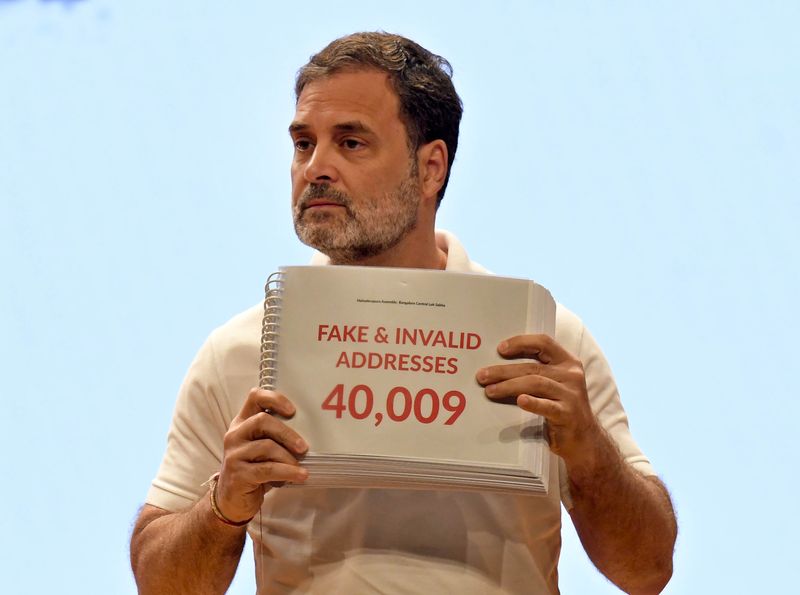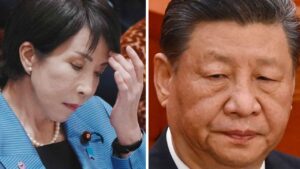
A day after Congress leader Rahul Gandhi accused the ruling BJP of orchestrating the theft of over one lakh votes in the Mahadevapura Assembly segment of the Bangalore Central Lok Sabha seat, the Election Commission of India (ECI) has issued a stern response. On Friday, the ECI demanded that Gandhi either provide a signed declaration under oath to substantiate his claims or issue a public apology.
The ECI’s challenge comes in the wake of Gandhi’s allegations, which were made during a press conference where he presented what he described as evidence of “vote theft” in the assembly segment. The opposition narrowly lost this seat to the BJP in the 2024 elections, intensifying the political stakes surrounding the claims.
ECI’s Firm Stance
According to sources within the ECI, the commission believes that if Gandhi is confident in his allegations, he should have no reservations about signing a declaration to that effect. “If he does not do so, then it will mean that his allegations are absurd and he should apologise to the nation,” an ECI official stated.
Following Gandhi’s press conference, the ECI immediately requested him to submit a signed declaration through the Chief Election Officer (CEO) of Karnataka. This request was echoed by the CEOs of Haryana and Maharashtra, who also sought written declarations detailing Gandhi’s accusations against the poll body.
Political Reactions and Broader Implications
Meanwhile, the ECI has taken a further jibe at Gandhi, suggesting that he might only raise objections to the special intensive revision (SIR) of electoral rolls in Bihar after the state’s assembly elections. This remark highlights ongoing tensions between the Congress-led INDIA bloc and the ECI over electoral processes.
The Congress has alleged that 65 lakh voters could be removed from Bihar’s electoral roll following the SIR exercise. This claim has prompted the Supreme Court to seek a detailed response from the ECI regarding the reasons for each of the 65 lakh deletions from the draft electoral roll.
The Supreme Court has instructed the ECI to file these particulars by August 9, with a hearing scheduled for August 12.
Historical Context and Expert Opinions
This confrontation between the ECI and a major political figure is not unprecedented. Historically, allegations of electoral malpractice have surfaced in Indian politics, often leading to intense scrutiny and reforms. Experts suggest that the current situation underscores the need for transparency and accountability in electoral processes.
Dr. Anjali Verma, a political analyst, noted, “The integrity of electoral rolls is crucial to the democratic process. Allegations like these, if proven, can undermine public trust in elections. It is imperative for both the ECI and political parties to ensure transparency.”
Looking Ahead
As the political drama unfolds, the implications of Gandhi’s allegations and the ECI’s response could have far-reaching consequences. Should Gandhi fail to provide a signed declaration or an apology, it could impact his political credibility and the Congress party’s standing in upcoming elections.
Conversely, if the allegations are substantiated, it could lead to significant electoral reforms and a reevaluation of the electoral process in India. The upcoming Supreme Court hearing will be a critical juncture in determining the veracity of these claims and the future of electoral integrity in the country.
As the nation awaits the next developments, the spotlight remains on the ECI and Rahul Gandhi, both of whom stand at the center of this unfolding political saga.







